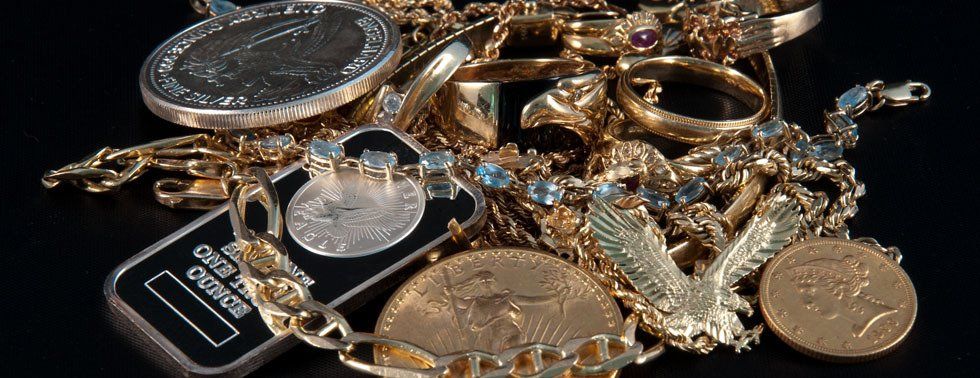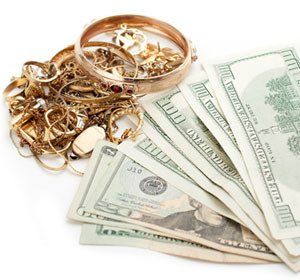
Explore the pawn industry with our FAQ
Expand your knowledge of pawnbrokers and the pawn industry with our list of interesting facts and useful information that we've collected throughout our time in our business. Please feel free to contact us with any questions - we'd be happy to help!
Become a part of a rapidly expanding industry
The pawn industry has been steadily strengthening since the 1980s. As the only credit resource for individuals who are outside of the banking system, pawnbrokers are a vital entity in every community.
The Numbers : Growing steadily since the early 20th century
- Membership in the National Pawnbrokers Association has risen from 50 in 1988 to more than 3,000 today.
- In 1911, there were 1,976 licensed pawnbrokers in the country (or about one for every 45,700 citizens).
- In 1988, there were approximately 6,900 pawnshops in the United States, one for every two commercial banks.
- There are between 12,000 and 14,000 pawnshops in operation throughout the United States today.
- Pawnshops made about 35 million loans in 1988.
- Between 70 and 80% of all items pawned are redeemed.
- As many as 10% of the adult population are served by pawnshops each year.
According to an article entitled "Cash Customers" in Forbes Magazine (May, 1993) 25 million households (representing more than 75 million people) do not have a bank account. People without bank accounts would find it extremely difficult, and most likely impossible, to obtain a credit card or obtain a loan from any other legitimate source than a pawnbroker.

Get the fast cash you require with ease
954-476-3128
The Record : Diversifying and earning renown in a variety of forums
- Formerly a male-dominated industry, women are now also making their mark as pawnbrokers.
- Pawnshop clientele are represented in a range of ages (must be 18 or older), races, and genders with male and female customers being about equal. As the public becomes more educated about the types of services pawnbrokers provide, pawnshops are serving a wider and more diverse clientele.
- All items received by a pawnbroker must to be listed with the city and/or state's police department, therefore reducing the chance of a consumer receiving stolen property.
- The pawn industry is one of the most regulated in the country. Most regulation has been initiated, sponsored and supported by pawnbrokers. Regulatory agencies include the Office of Consumer Credit and Law Enforcement on a local and national level.
- Pawnbrokers have state, regional and national industry associations which work at self-policing the industry. In the case of public companies, the Federal Securities and Exchange Commission oversee their operations.
- Pawnshops serve as a source of credit to millions of Americans, providing average small secured loans ($50 to $100) for a brief time period (two to four months).
Around the World : Spreading to a range of cultures
- Free enterprise in the form of pawnbroking has reappeared in communist states such as China to fill the gaps of their national banking system.
Historical Facts : Present in culture since the world's earliest ages
- The Nursery Rhyme "Pop Goes The Weasel" refers to pawning. A weasel is a shoemaker's tool and to "pop" is to pawn. "That’s the way the money goes... Pop goes the weasel."
- Queen Isabella of Spain pawned the crown jewels to finance Columbus' voyage to America.
- The word pawn originates from the Latin word "platinum" which means cloth or clothing. The French word "pan" refers to a skirt or blouse. In the early centuries, the principle assets people had were their clothes and borrowed money by pawning their clothing.
- There are between 12,000 and 14,000 pawnshops in operation throughout the United States today.
- The universal symbol of pawnbroking is three gold balls and is one of the most easily recognized in the world. The Medici family in Italy along with the Lombards in England were money lenders in Europe. Legend has it that one of the Medicis in the employment of Emperor Charles The Great fought a giant and slew him with three sacks of rocks. The three balls or globes later became part of their family crest, and ultimately, the sign of pawnbroking.
Miscellaneous Facts : Learn more about the pawnbroking boom
- Many pawnshops around the country cater to the likes of actors, producers and directors. Items one may inquire about purchasing include Rolls Royces, 10 carat diamonds and even jet airplanes.
- High quality merchandise such as gold and diamond jewelry, VCRs and musical instruments can be found in pawnshops for about half the price compared with retail stores.
- The 1980s provided a boom period for pawnbroking, with new shops opening in all parts of the country. This upturn, in part, is due to the increase in the number of Americans excluded from mainstream credit markets and small bank closings and in significant part to the upgrading by the industry of the products and service offered to the public.
Services : Pawn shops provide a diverse range of services
- Discount Retail (new and pre-owned) is an opportunity for customer to make their dollars go further - it helps other merchants and community by giving them more discretionary funds.
- Short-term credit enables the community to pay the bills of other local merchants such as groceries, medical expenses, utilities, auto and transportation to work. The pawn business is a neighborhood business with the majority of customers residing within 1-2 miles. The same people utilize a pawnshop that utilize McDonalds.
- If appearance or wrongful activities are a problem, it has to do with that particular business, regardless of the kind of business. The customer is the surrounding neighborhood - if good, good - if bad, bad. Restrictive zoning denies access to credit to low income consumers who cannot travel or who are uncomfortable in restrictive areas. Restrictive zoning implies the neighborhood is dishonest and questions the integrity of the residents - and it says that how much money you have determines the quality of your character.
